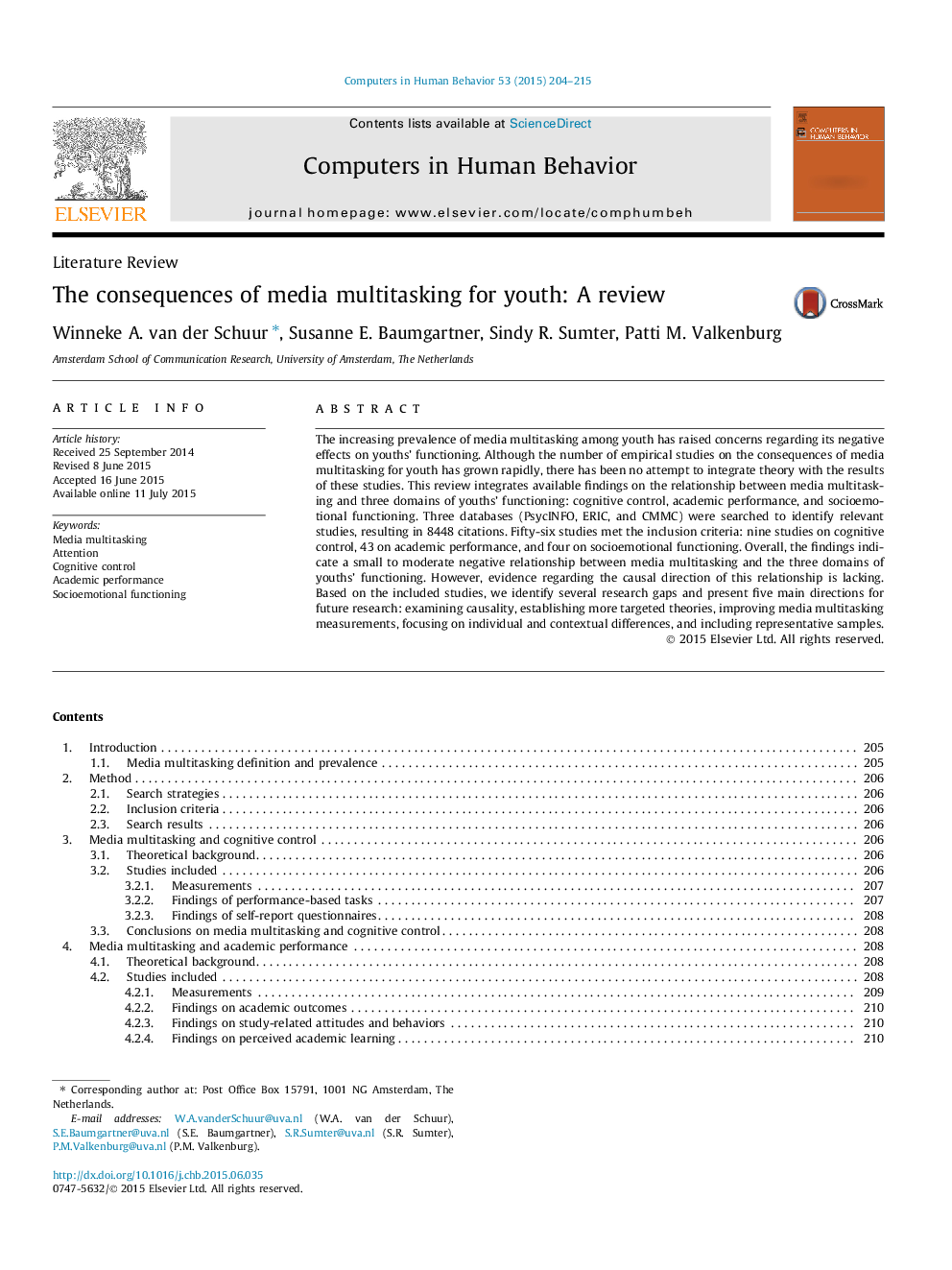| Article ID | Journal | Published Year | Pages | File Type |
|---|---|---|---|---|
| 350077 | Computers in Human Behavior | 2015 | 12 Pages |
•We integrate and interpret studies on media multitasking and youths’ functioning.•Media multitasking is negatively related to aspects of cognitive control.•Media use during academic activities is negatively related to academic performance.•Media multitasking is negatively related to emotional functioning and sleep.•We present five main directions for future research.
The increasing prevalence of media multitasking among youth has raised concerns regarding its negative effects on youths’ functioning. Although the number of empirical studies on the consequences of media multitasking for youth has grown rapidly, there has been no attempt to integrate theory with the results of these studies. This review integrates available findings on the relationship between media multitasking and three domains of youths’ functioning: cognitive control, academic performance, and socioemotional functioning. Three databases (PsycINFO, ERIC, and CMMC) were searched to identify relevant studies, resulting in 8448 citations. Fifty-six studies met the inclusion criteria: nine studies on cognitive control, 43 on academic performance, and four on socioemotional functioning. Overall, the findings indicate a small to moderate negative relationship between media multitasking and the three domains of youths’ functioning. However, evidence regarding the causal direction of this relationship is lacking. Based on the included studies, we identify several research gaps and present five main directions for future research: examining causality, establishing more targeted theories, improving media multitasking measurements, focusing on individual and contextual differences, and including representative samples.
